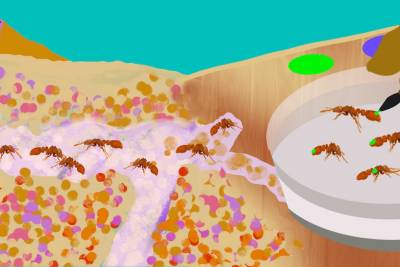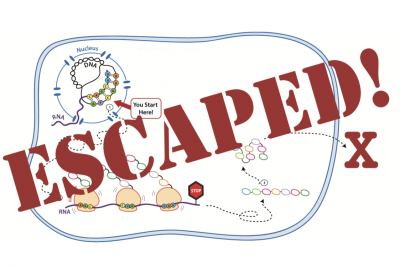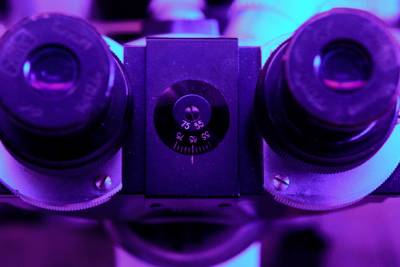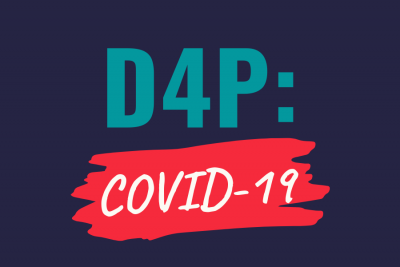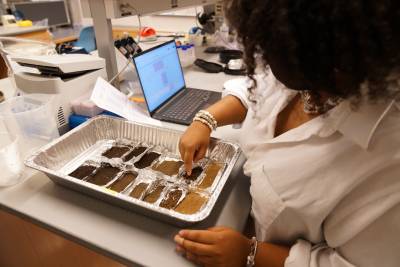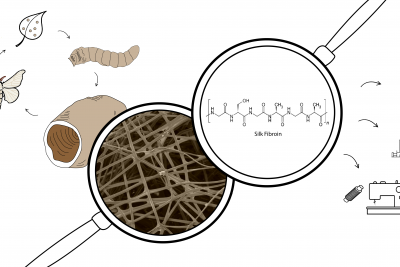Extracting meaning from animal behavior
When approached carefully and documented correctly, behavioral observation can also be a powerful scientific tool. With this exercise and follow-up discussion students get the chance to watch a lot of animals and see for themselves how behavior prompts scientific creativity by offering a context to wonder about the natural world.
The format also gives students the opportunity to consider how assumptions (or even prior knowledge) might influence the types of observations they make. The exercise presented here is modeled using a short clip of a confrontation between a lion and a pack of hyenas in Kenya’s Maasai Mara, but the format is flexible! Feel free to apply a similar framework to any interesting clips taken from your favorite nature documentary.
What you'll need
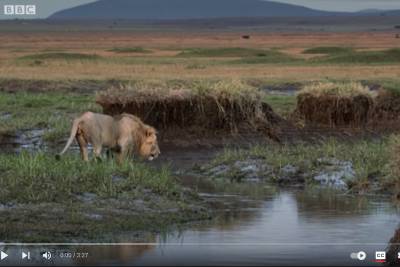
Nature Documentary Video Clip
Prepare a video clip—a few minutes long—such as BBC Earth’s Dynasties (or any other clip from a nature documentary)
Observation Exercise
A two-part exercise that students can perform either before class or at the beginning of the group discussion.
Part I: Silent observation
Students watch the following clip from BBC Earth’s Dynasties (or any other clip from a nature documentary) on mute: https://www.youtube.com/watch?v=2ygKUOGyvfU.
Example student prompts:
Note any behaviors that the lion or the hyenas perform that are particularly striking.
What behaviors stood out or seemed important?
What questions do you have about a given behavior?
What did the animals do that seemed curious or strange?
Anything goes! This should be free form but detailed note-taking.
Tips:
Encourage students to ask questions and make observations without worrying whether they’re “academic” enough.
Consider having students watch the video clip on their own (if time/resources allow). That way, they can watch the clip multiple times to notice new things or pause it to add to their notes. It’s easy to lose track of an observation as complex behavior unfolds, so give students enough time both to write and to watch.
Part II: Observation with sound
After watching on mute, students re-watch the clip with the volume on, noting questions/observations that come up during this round of watching.
Did adding narration clarify anything?
Did the narration change the questions students asked or what they paid attention to?
Group Discussion
Basic goal for discussion:
Allow students to explore the (potentially novel) concept that science can start with anything that makes them wonder.
As highlighted by the observation exercise, simply watching animals prompts all sorts of exciting questions. Even though these questions might need refining before they can be answered using scientific methods, excitement is the ultimate fuel for driving science forward!
Higher-level goals for discussion:
- Background knowledge and personal/collective assumptions influence how we observe animal behavior. Context can shape how we frame questions or even which questions we think to ask in the first place. Adding narration, music, etc provided both background information and emotional cues that may have changed what students took from the clip. Even editing choices can frame behavior in a certain way (e.g. interesting behaviors happen all at once).
- Taking notes on behavior is challenging, but detailed observation can be a powerful scientific tool in and of itself. What constitutes a “useful” observation? How do you separate objective logging from speculation about the meaning of a particular behavior? Careful notes are data – they allow for comparisons of behavior across animals or contexts, information that might help us infer hidden meaning or might prompt ideas for further exploration.
Some questions to prompt discussion:
What behaviors from the video made you curious? What questions did you frame?
Did the narration change the way you watched the clip? Did it change the sorts of questions you asked?
What was difficult about taking notes on behavior?
Do you think that nature documentaries are a “scientific” form of behavioral observation? (Why/why not?)

